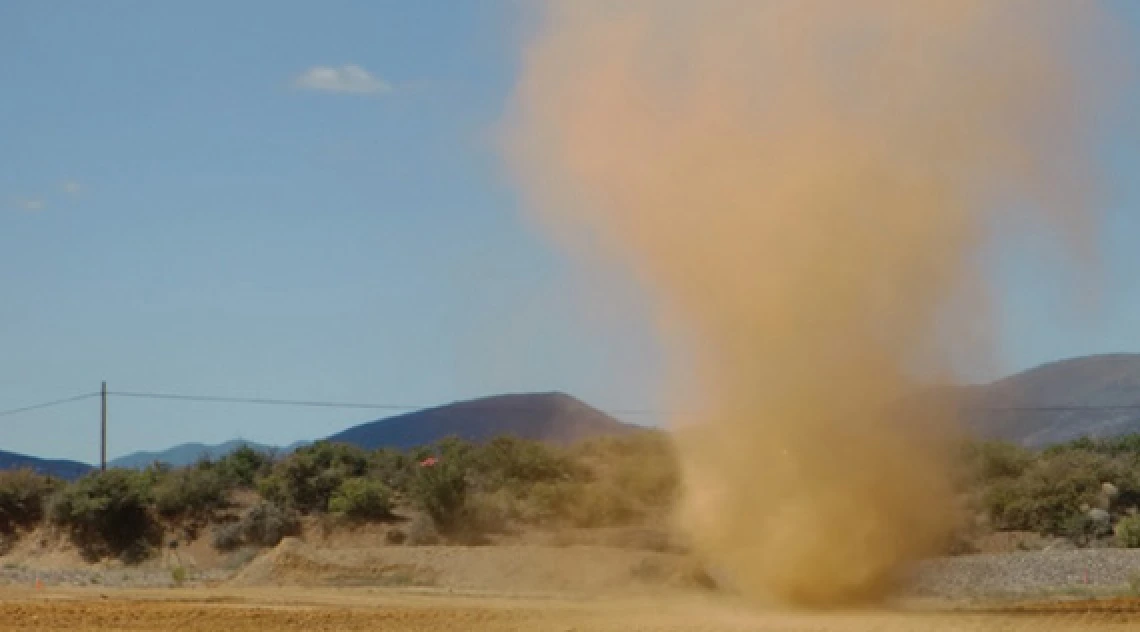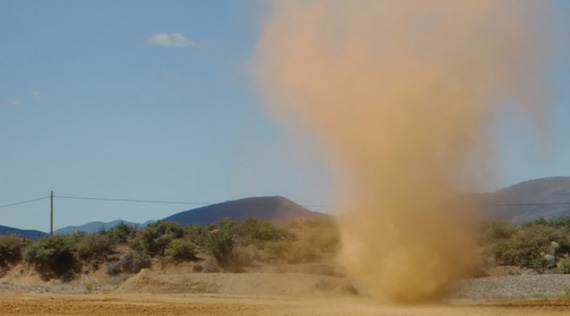Early Life Inhalation Exposure to Mine Tailings Dust Affects Lung Development

 The potential adult adverse health outcomes that result from exposures during early life are recognized. However, only limited attention has been paid to the effect(s) of environmentally relevant toxicant exposures during critical periods of development and even fewer studies have examined whether early life inhalation exposures leads to adult disease. Our research is investigating whether inhalation exposures to real world dust during development can lead to changes in lung function and structure in adults. If so, what are the critical times of exposure that lead to those changes? Using metal-containing real world dusts collected from an abandoned mine tailings site, we have exposed male and female mice only in utero, only post-natally or continuously (in utero and postnatal inhalation exposures). We have found that significant changes in lung function and structure are only seen in adult male mice following continuous exposures. In addition, alterations in protein expression of airway cells were seen indicating altered cell phenotype. These changes are associated with increased reactive oxygen products. The finding that both in utero and early postnatal exposures are required to produce significant alterations suggests that there are in utero effects caused by the mothers’ inhalation of the toxicant that “primes” the lung of the off spring for subsequent responses to inhaled toxicants after birth. The effects of the in utero exposures only become apparent following a subsequent exposure in the pups after birth. These results suggest that there may be health implications for pregnant women and children living near sources of metal-containing dusts.
The potential adult adverse health outcomes that result from exposures during early life are recognized. However, only limited attention has been paid to the effect(s) of environmentally relevant toxicant exposures during critical periods of development and even fewer studies have examined whether early life inhalation exposures leads to adult disease. Our research is investigating whether inhalation exposures to real world dust during development can lead to changes in lung function and structure in adults. If so, what are the critical times of exposure that lead to those changes? Using metal-containing real world dusts collected from an abandoned mine tailings site, we have exposed male and female mice only in utero, only post-natally or continuously (in utero and postnatal inhalation exposures). We have found that significant changes in lung function and structure are only seen in adult male mice following continuous exposures. In addition, alterations in protein expression of airway cells were seen indicating altered cell phenotype. These changes are associated with increased reactive oxygen products. The finding that both in utero and early postnatal exposures are required to produce significant alterations suggests that there are in utero effects caused by the mothers’ inhalation of the toxicant that “primes” the lung of the off spring for subsequent responses to inhaled toxicants after birth. The effects of the in utero exposures only become apparent following a subsequent exposure in the pups after birth. These results suggest that there may be health implications for pregnant women and children living near sources of metal-containing dusts.
Publication:
Mark L.Witten ML, Chau B, Sáez E, Boitano S, Lantz RC. Early life inhalation exposure to mine tailings dust affects lung development. Toxicology and Applied Pharmacology, Volume 365, 15 February 2019, Pages 124-132. Available on line at https://doi.org/10.1016/j.taap.2019.01.009.

